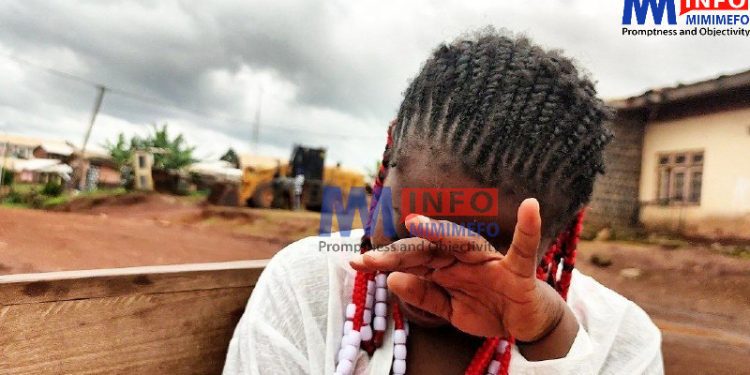A recently released hostage has made shocking revelations about how she was subjected to torture by separatists and that person who should have protected her, rather handed her over to her torturers.
Berka, one of the eight hostages released from the separatists’ den in Kikaikom, says she was handed to the Ambazonia separatist fighters (Amba boys) by a Catholic Priest.
“I really don’t know his name, but he is a priest of the Roman Catholic Church in Kumbo,” said Berka, the lone female hostage.
Berka had picked up about 300,000 FRS CFA at the Tobin while in the company of her friend. The situation was later reported to the said priest, who held her for a while and later called separatists who came and took her away at night.
While at the separatist camp for two weeks, Berka was treated in the most inhumane conditions.
“They were two weeks of hell; I was being beaten in the sole of my feet with a machete. I felt the pain in my heart,” she added.
She had spent part of the money before being taken to the separatist camp. Berka said the separatists said each time she was being beaten, they would only stop if she brought back the balance she had spent.
The four walls of the separatist den represented death for Berka. She had even wished they could have killed her rather than subjected her to the pain.
“I was locked up with men in a dusty dark room and for two weeks I did not take a bath; I feared I could be raped.”
Berka and other hostages were served rice once a day, or twice if they went to the farms of the fighters.
“We trekked long distances into the bushes to work on the farms of the fighters; on those days, they served rice twice a day”. Berka said.
Berka was among eight hostages released by the Rapid Intervention Battalion and three separatists who were well in their own cells, on October 4.
Despite the release, she lives in fear. “I am worried about my life, that of my four-year-old son, and that of my grandmother; if I do not get displaced, the separatists will kill me.”
Berka is now free from the physical torture she suffered in the separatist camp, but the emotional and psychological trauma is something she might not overcome soon. Like many others, she wishes that a sustainable end to the conflict is reached.
Though she doubts that separatists will drop their weapon given that “they are making a lot of money from calling and threatening people with death,” said Berka as she bowed her head, struggling to hide her tears



